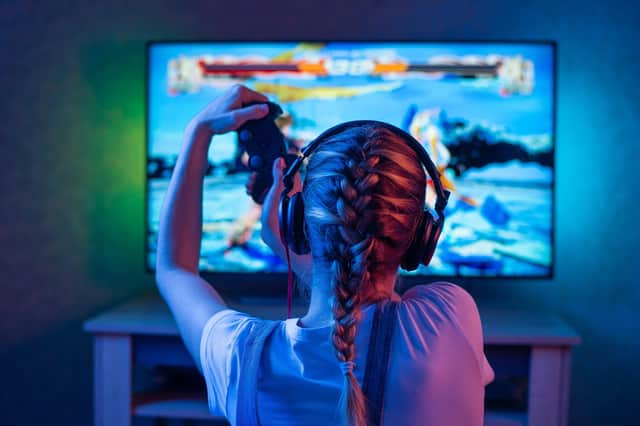Computer games play a useful role in society today | Blaise Tapp


For years, I lived in fear that she might have a point, that this was a genuine affliction that would befall me due to my penchant for most soap operas, including the Australian offerings, and anything football-related that I could play on my Amstrad computer. The games I liked the most were those where I could live out my fantasy of emulating the managerial achievements of Brian Clough or George Graham – Alex Ferguson hadn’t yet become a serial winner.
The trouble with playing video games back in the late ‘80s and early ‘90s was that everything took so long, partly because waiting for both tape cassettes, then the not-so-floppy-discs that followed them, to load was as drawn out as a Ronnie Corbett monologue. With the game loaded, it then took a day to complete if I was to stand a chance of guiding Portsmouth to the league title due to the fact that the game wouldn’t save, and leaving the monitor switched on all night would have posed an immediate fire risk.
Advertisement
Hide AdAdvertisement
Hide AdAlthough this particular obsession was relatively brief, I did lose many weekends, not to mention chunks of school holidays to this very solitary pursuit.
Of course, it was a far cry from today’s interactive, multi-player games, which have led mums and dads who also grew up in the analogue era, worrying about what their children are getting up to in their bedrooms.
While there is much online for parents to worry out about, are we fretting too much when it comes to our kids’ gaming habits? A newly-published study showing that some 14-year-old boys who regularly play games on their devices are less likely to suffer from depression than their peers who don’t.
While there are plenty of caveats to the research, it goes some way to dispelling fears that sitting in front of screens is inherently unhealthy, a fact that I’m slowly coming round to. Like most 11-year-olds starved of contact with friends during recent months, our daughter has done nearly all of her socialising virtually.
Advertisement
Hide AdAdvertisement
Hide AdWhile the amount of time she spends shut away in her bedroom is the subject of much heated ‘debate’ there is little doubt that playing games online is the closest thing she will currently get to interacting with her pals. Parents everywhere want their child to be able to be adept socially, but we need to remember that there are different rules of engagement in the 2020s.
Video chats are allowing a generation of kids who have had their world turned upside down since last March to see the faces of those who make them happy. These calls, which thankfully don’t cost the bill payer a penny, can last for hours on end and, in our house at least, include lengthy gaming sessions.
The wonders of technology mean that parents like me are able to download apps to our phones that both monitor what our children are up to online and, crucially, limit the time they spend in front of a screen. These interventions, while hugely unpopular with Generation Z, provide peace of mind to adults who are otherwise out of their depth.
The alternative would be stopping children from using devices completely, which in the long run, would be a mistake as it cuts them off from their all-important social network. There will come a time soon when children will be able to play outside with their friends again and rejoin the sports clubs that have been mothballed as a result of successive lockdowns, but their digital experiences will remain a central part of their lives.
Our job as responsible adults is to help them maintain the balance between keeping in touch with friends and not becoming square-eyed.
Comment Guidelines
National World encourages reader discussion on our stories. User feedback, insights and back-and-forth exchanges add a rich layer of context to reporting. Please review our Community Guidelines before commenting.